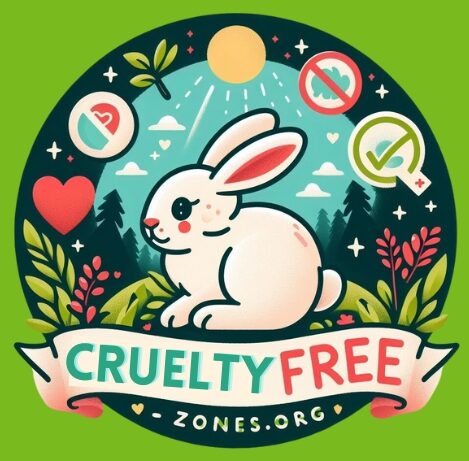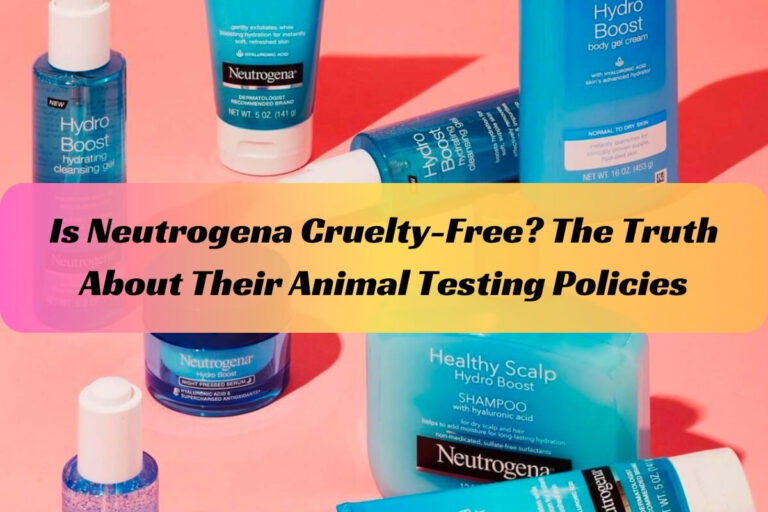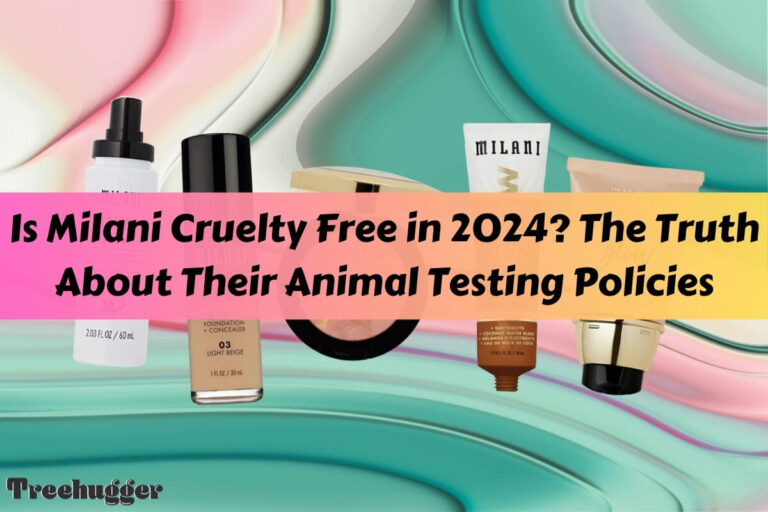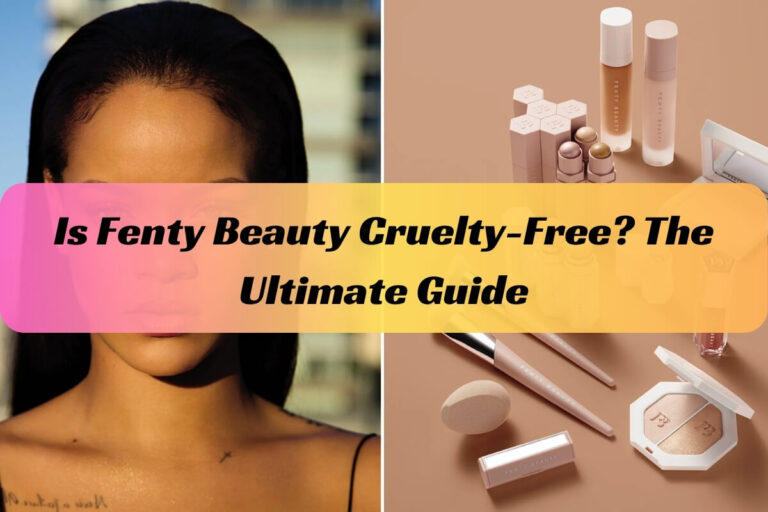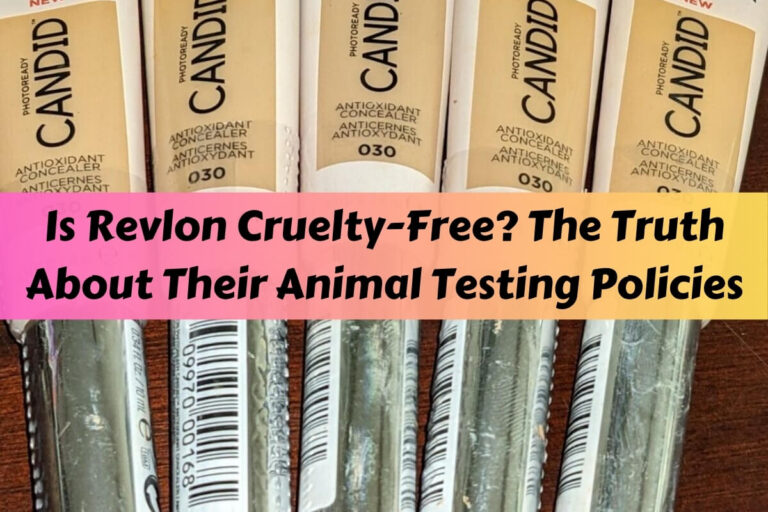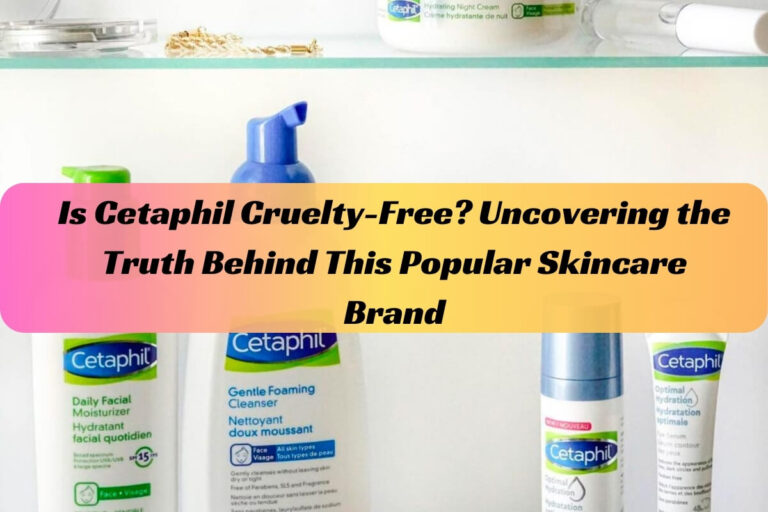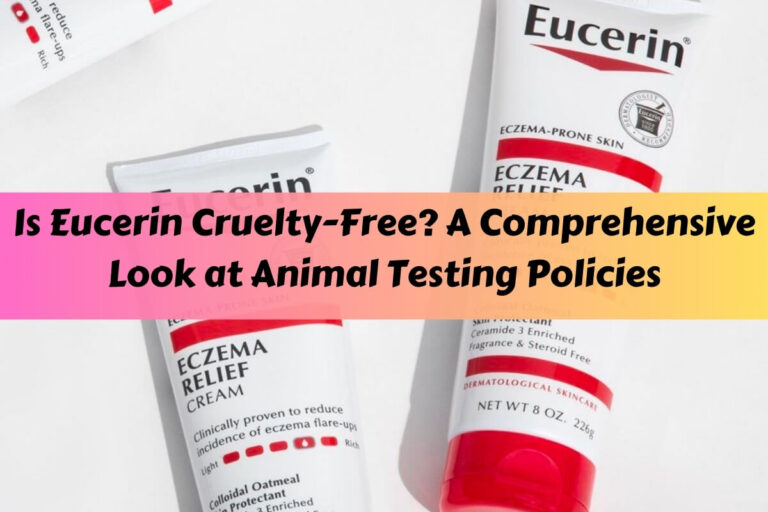Is Tarte Cruelty-Free? The Truth About Their Animal Testing Policies
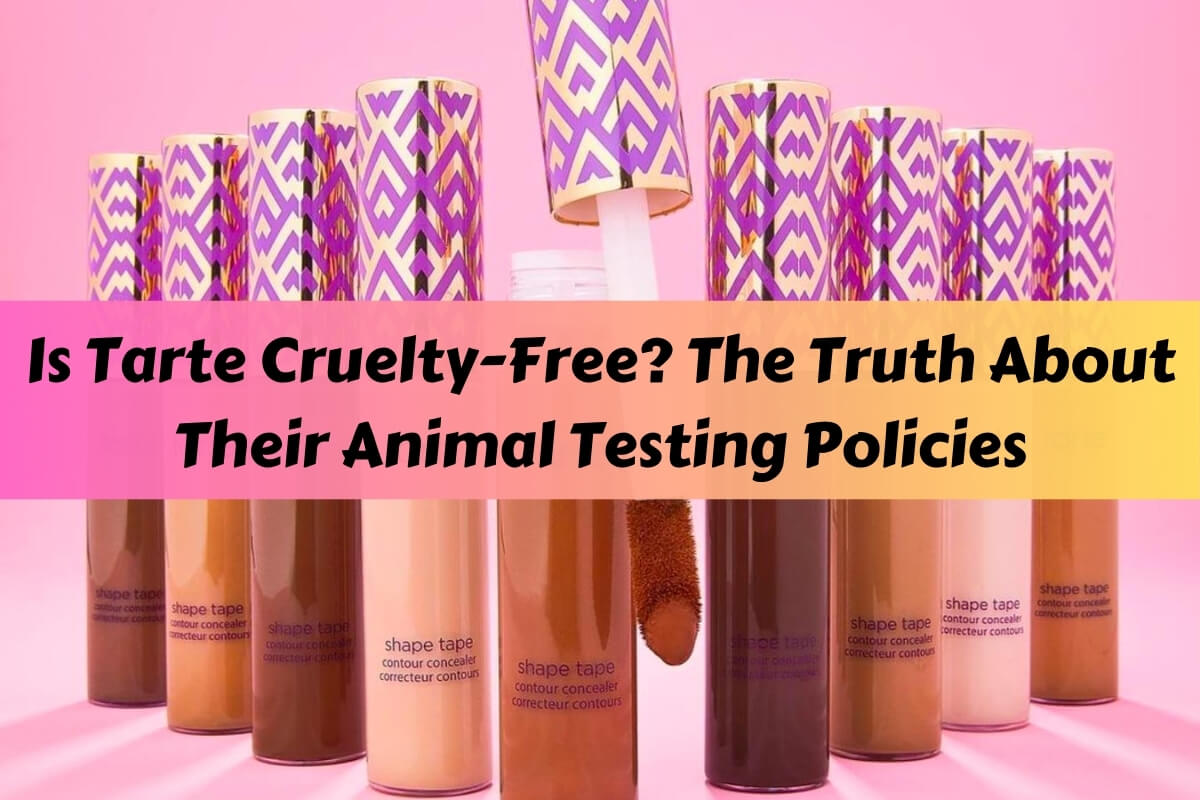
With so many cosmetics brands on the market, it can be tough to decipher which ones truly align with a cruelty-free lifestyle. One brand that often comes up is Tarte Cosmetics, known for cult favorites like the Shape Tape concealer.
But is Tarte cruelty-free? The short answer is yes, Tarte does not test its products or ingredients on animals, nor does it allow third parties to do so on its behalf.
Tarte has some ethical complexities that conscious consumers should know. This guide covers Tarte’s animal testing policies, cruelty-free certifications, vegan products, ingredient sourcing ethics, parent company connections, and sustainability efforts.
By the end, you’ll have all the facts to determine if Tarte fits your cruelty-free standards.
What Does Cruelty-Free Mean?
Before we get into Tarte’s specifics, it’s important to understand what the term “cruelty-free” means in the world of cosmetics and personal care products. There is no legal definition, but in general, cruelty-free implies:
- No animal testing at any stage of development – this includes ingredients, formulations, or finished products
- This testing is not conducted by the brand itself, its suppliers/manufacturers or any third parties hired to test on the brand’s behalf
The key distinction is that cruelty-free refers only to animal testing, not the use of animal-derived ingredients. That’s where the separate term “vegan” comes into play.
Vegan products contain no animal products or by-products like beeswax, lanolin, collagen, etc. So a brand can be cruelty-free but not 100% vegan, which is the case with Tarte as you’ll see later.
Tarte’s Official Animal Testing Policy
On Tarte’s website, under their “Animal Testing Policy”, the brand clearly states:
“Tarte does not test its products or ingredients on animals, nor does it allow others to test on its behalf. Tarte is certified cruelty-free by PETA.”
The brand goes on to say that not only does it not conduct animal testing, but its manufacturers and ingredient suppliers are also prohibited from animal testing.
Tarte doesn’t sell products in markets that require animal testing by law.
Is Tarte Certified Cruelty-Free?
Third-party cruelty-free certifications can help verify a brand’s animal testing claims. Tarte is certified cruelty-free by PETA’s Beauty Without Bunnies program.
Tarte is not certified by the Leaping Bunny Program, which has stricter criteria than PETA. Leaping Bunny certification is considered the gold standard by many cruelty-free consumers and advocates.
While PETA’s certification holds weight, the lack of a Leaping Bunny approval may raise some concerns for particularly strict cruelty-free shoppers.
Tarte’s Vegan Product Options
As mentioned earlier, the terms “cruelty-free” and “vegan” are not interchangeable. Tarte is cruelty-free but not a fully vegan brand. Some of its products do contain animal-derived ingredients like:
- Beeswax
- Carmine (crushed insects)
- Lanolin
- Honey
- Collagen
However, Tarte does offer a wide range of vegan products. On its website, Tarte has a designated “Vegan Edit” section that currently lists 286 vegan makeup, skincare, and other beauty products.
Some of Tarte’s most popular vegan products include:
- Shape Tape Vegan Concealer
- Amazonian Clay Vegan Foundations
- Vegan Mascara and Eyeliners
- Vegan Eyeshadow Palettes
- Vegan Brushes and Tools
For consumers looking to live a fully vegan lifestyle, Tarte offers some suitable options even if the brand itself is not 100% vegan.
The Controversy With Tarte’s Parent Company
One of the biggest controversies and criticisms around Tarte’s cruelty-free status relates to its parent company. In 2014, Tarte was acquired by Kose, a major Japanese personal care corporation.
Here’s where things get tricky – Kose is not a cruelty-free company. While Kose may allow Tarte to operate cruelty-free, the parent corporation does still permit animal testing for some of its other brands and products.
This creates an ethical dilemma for many cruelty-free consumers. By supporting Tarte, they are indirectly providing revenue to a parent company that engages in animal testing elsewhere in its business operations and brand portfolio.
How to Navigate Brands With Parent Company Issues
When it comes to cruelty-free brands owned by non-cruelty-free parents, the ethical consumer community is somewhat divided:
- Some consciously avoid any brands owned by a parent allowing animal testing, even if the individual brand is cruelty-free certified. Their view is that money still flows to the unethical parent.
- Others choose to support cruelty-free brands regardless of their parent, as a way to “vote with their dollars” and incentivize the ethical practices they want from corporations.
- Many simply don’t have affordable cruelty-free options beyond brands with controversial parent ties, due to accessibility issues.
Ultimately, it’s a personal choice. However, consumers need to have full transparency about Tarte’s relationship with Kose so they can decide if it aligns with their ethics or not.
Ethical Ingredient Sourcing at Tarte
Another key aspect of being a truly “ethical” brand beyond animal testing is sourcing ingredients in an ethical, sustainable manner. Tarte has been criticized by some for its lack of transparency around sourcing potentially unethical ingredients like:
- Mica
- Palm Oil and Derivatives
- Shea Butter
The mining and harvesting of these ingredients has been linked to human rights violations, child labor, environmental destruction, and more in certain parts of the world.
What Tarte Says About Their Ingredient Sourcing
When asked directly about their mica and ingredient sourcing policies, Tarte provided the following response:
“Our formulas are very important to us, so we work with respected suppliers and manufacturers in the US, Europe, and other countries who have expertise in beauty materials. These suppliers are audited to prevent slavery and human trafficking in our supply chain.”
The brand didn’t disclose the sources or ethical conditions for its mica, palm, and shea sourcing, which raises concerns for conscious consumers.
Tarte’s Sustainability Initiatives
While ethical sourcing is a grey area, Tarte does promote some sustainability initiatives for the brand:
- Uses “naturally-derived” ingredients and avoids many common cosmetic toxins like parabens, phthalates, SLS, etc.
- Claims its star ingredient Amazonian clay is ethically and sustainably sourced from the Amazon through partnerships with local cooperatives.
- The brand’s maracuja (passionfruit) oil comes from an all-female farming collective in the rainforest that prevents seed waste.
- Tarte sponsors the Sea Turtle Conservancy to give back to marine ecosystems (its waterproof formulas utilize marine ingredients).
The brand lacks transparency on packaging sustainability, recycling programs, and use of recycled materials, unlike other eco-conscious brands.
So Tarte appears to be taking some steps in the right direction from a sustainability standpoint but has room for improvement and greater transparency. The same could likely be said about its overall ethical commitments.
Top Questions About Tarte’s Cruelty-Free Status
To wrap up, let’s quickly address some of the most common questions people have about whether Tarte is truly cruelty-free:
Does Tarte Test on Animals?
No, Tarte states it does not test its products or ingredients on animals at any point, from development to production. It also prohibits suppliers and third parties from conducting animal tests on its behalf.
Are Tarte Products Safe and Non-Toxic?
Tarte claims to avoid many common toxic ingredients found in cosmetics like parabens, phthalates, sodium lauryl sulfate, triclosan, and gluten in its formulas. However, some of its products still contain synthetic ingredients and preservatives that could potentially be irritants or have negative health impacts for some users.
As with any cosmetics brand, it’s important to review ingredient lists carefully if you have allergies or sensitivities. Tarte does not make an explicit “non-toxic” or “clean” claim across all its product lines.
Is Tarte Gluten-Free?
Yes, Tarte states that all of its products are gluten-free and formulated without any gluten-containing ingredients. This is an important qualification for those with gluten allergies or intolerances.
Final Verdict: Is Tarte a Cruelty-Free Brand?
After thoroughly examining Tarte’s official policies, certifications, product ingredients, sourcing practices, and more, here is our overall assessment of whether the brand can be considered truly cruelty-free:
The Good:
- Tarte does not test its finished products or ingredients on animals
- It prohibits its suppliers and manufacturers from animal testing
- It is certified cruelty-free by PETA
- It offers a wide range of vegan products clearly labeled
- It promotes some sustainability initiatives like avoiding certain toxins
The Bad:
- It is owned by a parent corporation (Kose) that is not cruelty-free
- There is a lack of transparency around the ethical sourcing of mica, palm oil, etc.
- Details on overall sustainability efforts like recycling are unclear
- It is not certified by the stricter Leaping Bunny program
The Nuanced:
- Whether the ethical issues with the parent company are a dealbreaker is up to each consumer’s values
- Tarte takes important steps but doesn’t fully clear the highest bars of cruelty-free and environmental ethics set by some advocates and certifiers
Overall, Tarte makes a legitimate effort to be a cruelty-free brand based on its strong policy statements and PETA certification. However, its connection to a non-cruelty-free parent and lack of transparency around sourcing may give some particularly discerning consumers pause before fully embracing Tarte as an entirely ethical company.
As with many brands in the cosmetics industry, Tarte operates in a bit of an ethical grey area where consumers need to decide if the brand aligns closely enough with their values or if other alternatives might be preferable. Tarte deserves credit for its cruelty-free commitments while still having room for improvement in other ethical domains.
There is no perfect answer, but armed with the facts, you can now make your own informed decision as a conscious consumer. The cruelty-free movement continues pushing corporations toward more sustainable, ethical, and transparent practices for the benefit of people, animals, and the planet we all share.
